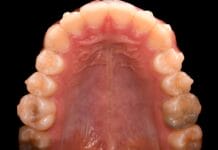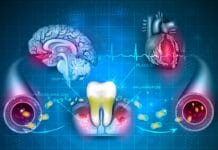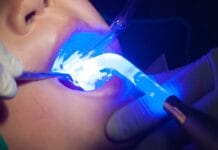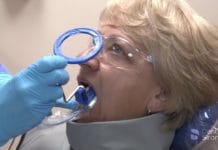A recent scientific breakthrough revealed a potential causal link between renal function and periodontal inflammation. A group of dental professionals at the University of Birmingham conducted a study with patients diagnosed with chronic kidney disease to find more information. Due to their advanced tools and research methods, they were able to confirm that an imbalance of oxygen-producing free radicals due to periodontal disease can end up interfering with the body’s renal function. The Journal of Clinical Periodontology published the results of their research under the title, “Oxidative stress links periodontal inflammation and renal function.”
About Chronic Kidney Disease
According to the National Kidney Foundation, an estimated 37 million Americans live with chronic kidney disease every day. The illness involves the gradual loss of kidney function due to a serious health condition like diabetes or high blood pressure.
The kidney is in charge of removing waste and excess fluid from the blood before it is expelled as urine. As a result, when someone’s kidney stops working properly, it means there is an excessive build-up of electrolytes and other waste inside the body because the organ can’t remove it. If the disease progresses, the patient may need a kidney transplant or dialysis to survive.
Several factors may increase someone’s risk of developing chronic kidney disease. Smokers and people of African American, Native American, or Asian-American descent are at high risk. Patients with high blood pressure, diabetes, and a history of kidney damage in the family are also more susceptible.
Some of the most common signs or symptoms of chronic kidney disease include:
- No appetite
- Muscle cramps
- Swollen feet
- Shortness of breath
- Chest pain
- Feeling lethargic
- Frequent urination
- Poor concentration
- Itchy skin
- Insomnia
- Puffy eyes
- Nausea
Patients with chronic kidney disease are more likely to develop anemia, nerve damage, and weak bones after their diagnosis. It can also increase your chance of having heart and blood vessel disease.
The Link Between Periodontal Disease and Oxidative Stress
Periodontal inflammation is one of the biggest causes of oxidative stress. It occurs when there is an imbalance between free radicals and antioxidants in your body. A free radical is another term for when the oxygen molecules in your body have an uneven number of electrons. Like periodontal disease, oxidative stress can seriously impact the body when it is not functioning properly. When there’s an imbalance between free radical activity and antioxidant activity, it can harm your health by accelerating the aging process and causing more reactive chemical reactions.
About the University of Birmingham Dental Study
The purpose of the dental study was to examine the causal link between renal function in patients with chronic kidney disease and periodontitis due to oxidative stress. A cross-sectional design was used, along with structural equation modeling to analyze the effect of renal function due to periodontal inflammation.
They gathered 770 participants who were anywhere from stage 3 with moderate kidney damage all the way up to stage 5 of the disease. The scientists measured the periodontal inflammation and renal function using bio-clinical data. They gradually adjusted the structural equation modeling to test for a statistical reference for the causal assumption that periodontal inflammation affects renal function and vice versa.
By the end of the study, the researchers were able to confirm the assumption that both are causally related due to systemic oxidative stress. In fact, a 10% increase in periodontal inflammation resulted in a 3.0% decrease in renal function. Meanwhile, a 10% decrease in the participant’s renal function resulted in a 25% increase in periodontal inflammation. The researchers believe future clinical studies can further examine different therapies that can reduce inflammatory oxidative stress and reduce its impact on patients with chronic kidney disease.
The researchers feel further clinical research is needed to confirm whether periodontal therapy can be used as a non-pharmacological approach in reducing systemic inflammation and the oxidative stress burden to improve outcomes for patients with chronic kidney diseases.










